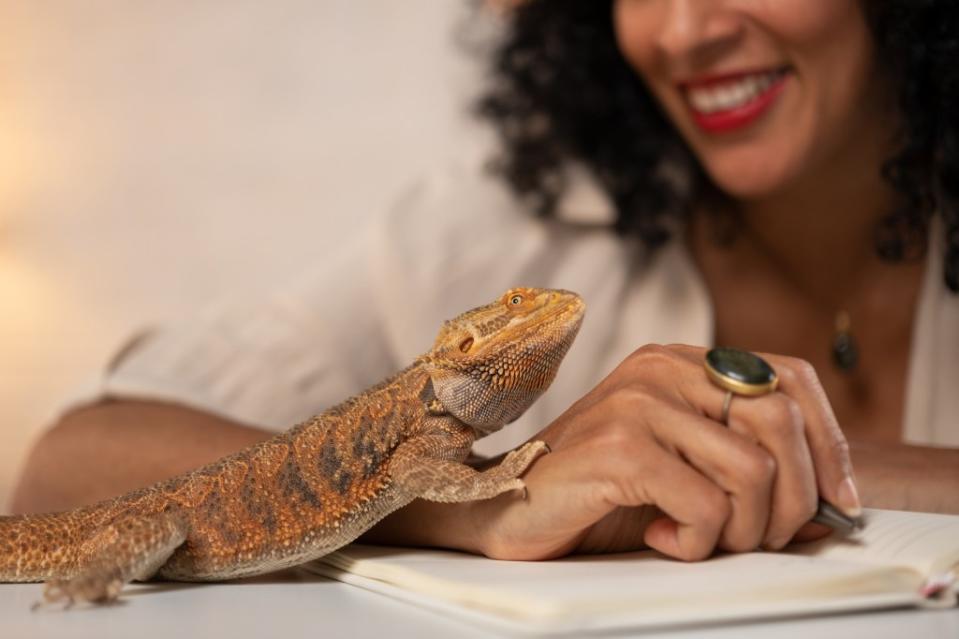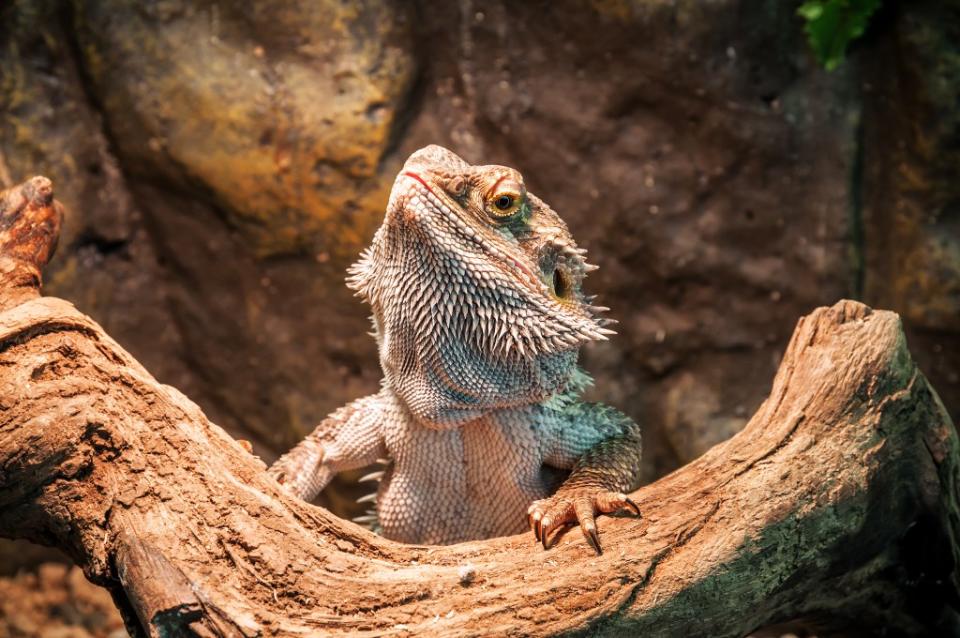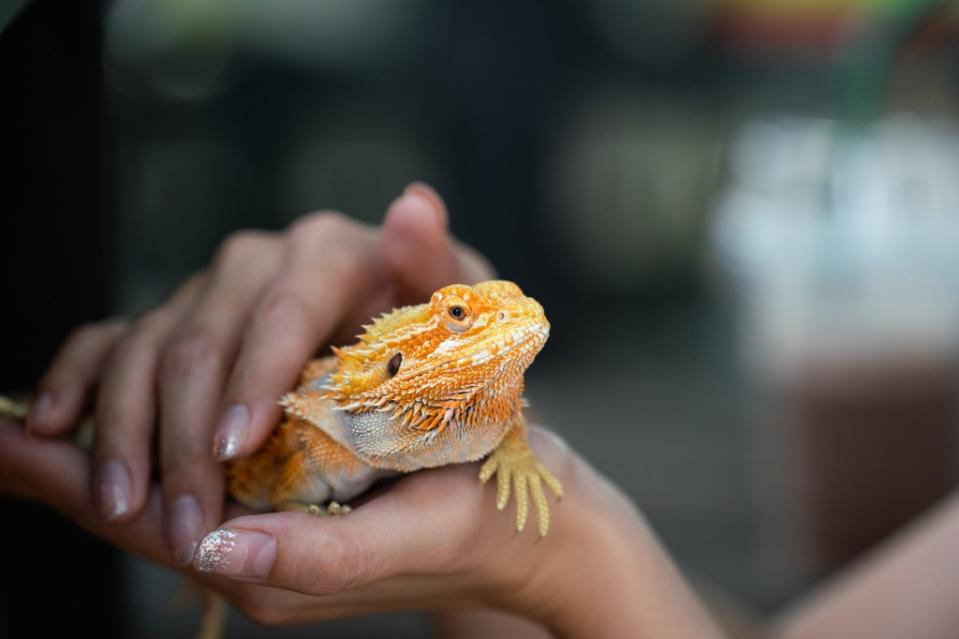Rare salmonella strain linked to pet lizards — dozens of people sickened, CDC warns
Keep your reptile away from the kitchen.
The Centers for Disease Control and Prevention has reported that a rare strain of salmonella is linked to ownership of bearded dragon lizards, a cold-blooded cult favorite among pet owners.
Those who allow the little-tailed beasts to roam freely put their entire household’s health at risk, especially in food settings, per the CDC.
“Bearded dragons can carry salmonella germs in their droppings even if they look healthy and clean. These germs can easily spread to their bodies and anything in the area where they live and roam,” the organization warned.
“You can get sick from touching your bearded dragon or anything in its environment and then touching your mouth or food and swallowing salmonella germs.”

Up to March 2023, there were 32 observed cases — 10 involving hospitalizations — tied to bearded dragons, and a new study published in “Emerging Infectious Diseases” reported that 12 of those came from the U.S. between 2021 and 2022.
There were two other cases of the diarrhea-inducing disease in Ontario, Canada, and they were the first of this specific strain that the nation has seen in 14 years.
That study also ties the new cases to a sole breeder in southeast Asia.
Owners of the highly popular bearded dragon typically take the lizard out of its cage quite often, Dr. La’Toya Latney, who is president of the Association of Reptile and Amphibian Veterinarians, told the New York Times.
“They are the golden retriever of the reptile world in terms of ease of handling,” she said.

A conservationist professor at the University of California, Davis added that the pet — a 2021 survey crowned them the most-owned reptile — has taken off with college-aged young adults as well.
“I have college students that will come to class with their bearded dragon on their shoulder, which is probably not the most hygienic thing,” Brian Todd told the Times.
“After you’ve handled one, you need to wash your hands, especially before preparing food or picking up your child.”

He’s right, according to the CDC, which specifically warns: “Don’t kiss or snuggle your bearded dragon, and don’t eat or drink around it,” adding that it “can spread Salmonella germs to your mouth and make you sick.”
The agency also advises against getting one for children under 5 or adults over 65 because of weakened immune systems.

